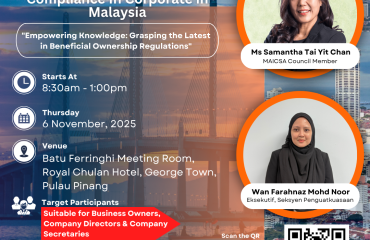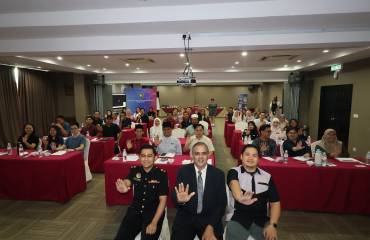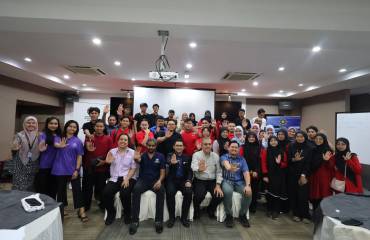Transparency International Malaysia (TI-M) is appalled by the news reports of three Malaysian Anti-Corruption Commission (MACC) officers arrested for allegedly misappropriating funds connected to a case involving the country's former director-general of the Malaysian External Intelligence Organisation (MEIO), Datuk Hasanah Abdul Hamid.
The officers, who were detained last week, had allegedly misappropriated a portion of US$6 million (RM25 Million) seized from Datuk Hasanah after she was granted a discharge not amounting to an acquittal by the High Court this year, and had attempted to reclaim the money only to learn that some of it had gone missing and was replaced with counterfeit money which is serious, according the news reports.
TI-M reiterates the question reportedly raised by a Member of Parliament as to why the MACC is investigating its own officers over the alleged theft of money seized in the course of investigating a criminal breach of trust case and not the police. The offence of misusing property entrusted to a civil servant clearly falls under section 409 of the Penal Code and is under the jurisdiction of the Royal Malaysian Police (PDRM). Perhaps it will be wise for MACC to make a police report immediately and allow a normal criminal investigation to be conducted.
Section 409 of the Penal Code states:
Whoever, being in any manner entrusted with property, or with any dominion over property, in his capacity of a public servant or an agent, commits criminal breach of trust in respect of that property, shall be punished with imprisonment for a term which shall not be less than two years and not more than twenty years and with whipping, and shall also be liable to fine.
The Global Corruption Barometer (GCB) report 2020 has highlighted that the trust rating Malaysians have in the MACC is at 74% - this number is directly linked to perceptions of corruption in the government and civil service, as well as the confidence Malaysians have in reporting incidences of corruption to the law enforcement agency. Such incidences as above, coupled with a lack of transparency and independent due process in handling the allegations will only serve to further tarnish the image of the MACC.
TI-M, along with civil societies has long advocated for greater and more independent oversight for the MACC by making the MACC a constitutional commission that is directly accountable to parliament, as opposed to being solely answerable to a cabinet minister.
It is likely these events are not isolated and such leakages, if not dealt with adequately and swiftly, will send the wrong message to the local and international community, and negatively affect Malaysia’s Corruption Perceptions Index (CPI) Score in the future. The Rakyat deserve an independent MACC that is accountable for its conduct.
Note to Editors: For clarification on any and all official statements from Transparency International – Malaysia (TI-M), kindly refer to its President, Dr Muhammad Mohan (mmohan@transparency.org.my)







